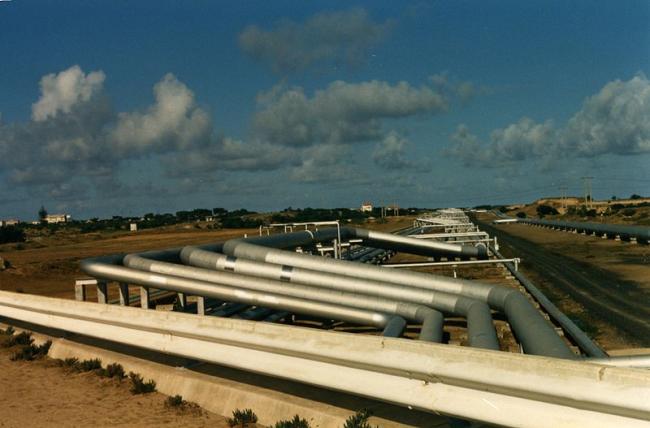Economic processes always involve the consumption or conversion of energy. Historically, the composition of primary energy sources has changed significantly. Since the emergence of the environmental movement and mounting concerns about global resource limits in the 1970s, the relation between economy and ecology has become a central social and political concern. Recently, its relevance has become even more pronounced due to the effects of climate change. How did national governments and international organizations try to ensure sufficient energy supplies? How did they, as well as non-governmental organizations, try to control and mitigate the negative ecological consequences of energy consumption?
Political Transformations of Energy and the Environment

Bildinfo
Pipeline near to Sines, in Portugal, Foto: Traroth, Quelle: wikimedia commons, Lizenz: CC BY-SA 3.0
